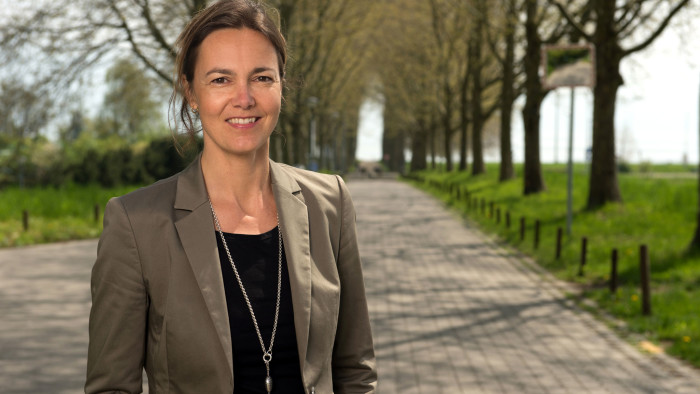Franciska Krings

Roula Khalaf, Editor of the FT, selects her favourite stories in this weekly newsletter.
Franciska Krings is a professor of organisational behaviour at HEC Lausanne in Switzerland and vice-rector of the University of Lausanne, which includes the business school. Her academic work focuses on diversity, discrimination and stereotyping and in her management role she is in charge of equal opportunities and mediation.
Prof Krings studied for a PhD in psychology at the University of Bern in Switzerland. In her spare time, she enjoys reading novels and going on hikes with her family.
1. Who are your business heroes?
I am quite sceptical of the notion of heroes. Most of the time, success and achievements are due to the efforts of a group of people who are committed to a common goal, rather than the impact of one individual. We tend to overplay the importance of individuals, particularly if they are highly visible. For me, true heroes tend to be invisible, everyday people who help others on a voluntary basis, without making much noise or expecting to be recognised. People like that simply make society a better place.
2. What is an average day at work like?
I am very lucky to start the day arriving at our beautiful campus situated on the shore of Lake Geneva with the Alps in the background. Meetings are a key feature in a typical day and these can range from committee meetings which require a common consensus among key stakeholders to strategic management meetings with my colleagues which tend to be more fast-paced and decisive.
3. What do you enjoy most about your job?
I am responsible for diversity and gender equality at the business school and the university. This provides a unique opportunity to apply what I have learnt from my own research as well as what I teach. And this, in turn, influences how and what I research and teach.
For example, the percentage of tenured women professors here (as well as at the other Swiss universities) is still too low. Some basic research has given us some ideas about what would help women overcome organisational barriers (eg offering more help balancing work and family life, providing gender-sensitivity training to senior decision makers, etc). So we now work with each faculty member to develop their own specific gender-equality action plan that takes into account their own particular needs.
4. What would you do if you were dean for the day?
First, I’d work on finding ways to attract and hire more female faculty members. Second, I would try to integrate an ethical element into core business courses so that students learn to recognise and address it as part of their everyday decision-making rather than viewing ethics as something that is detached from core business questions.
5. What is your biggest lesson learnt?
When our twins were born, I learnt that you can’t plan everything in life. I had heavily underestimated what it means to have twins. Moreover, my son had some serious health issues during his early years and needed a lot of attention so I couldn’t do the things I had planned. I had to drop them and come up with another plan. This was a very important lesson. It taught me that plans are all very well, but sometimes you need to drop or modify them and adapt to a new situation.
6. What advice would you give to women in business?
Be yourself.
7. What is the strangest thing you have ever done when teaching?
When we moved back from the US to Switzerland, I had to teach in French right away. I had last studied French in high school so it was quite rusty. To cope with the fact that I had to teach a course without really having the linguistic competence I needed, I wrote down every single word that I wanted to say.
8. What is the last book you read?
The Sound and the Fury by William Faulkner. This book really drew me in by its complexity, its poetic rhythm and the deep psychological and historical insight it conveys. Truly fantastic!
9. What is your favourite business book?
My favourite business book would be Leading Teams: Setting the Stage for Great Performances by J. Richard Hackman. This book is a highly enjoyable read and says so much about what one should know about teams.
Two of my favourite books are: Social and Psychological Bases of Ideology and System Justification, edited by John Jost, Aaron Kay and Hulda Thorisdottir, all well-known psychologists. [And] Täter: Wie aus ganz normalen Menschen Massenmörder werden (Perpetrators: How ordinary men become mass murderers) by Harald Welzer, a well-known sociologist, who makes a detailed analysis of how ordinary people could commit such atrocities in Nazi Germany. It demonstrates that doing very bad things is not necessarily a question of very bad character but of a very bad and corrupting context. One should never underestimate the impact of situational elements on people’s behaviour.
10. If you could do it all again, what would you do differently?
Meet my husband two years earlier.
Comments